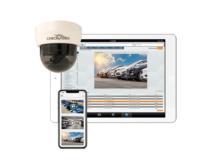Trends & Industry Issues
Distributor Training & Resources
COVID-19 spurred a boom in digital training. Now in-person training is back. But digital isn’t going away any time soon, distributors say.
Read More
SDM Industry Voices
Who Is Looking Up? Airspace Security as an Emerging Revenue Stream for Integrators
June 7, 2021
SDM Industry Voices
The Impact of the Worldwide Shortage of Microchips on the Electronic Security Industry
June 7, 2021
VIDEO SURVEILLANCE
Cloud Video's Bright Future
As pandemic protocols have shifted global norms, cloud video has seen an uptick in acceptance, functionality and deployment.
June 1, 2021
Digital Shuffle
Calipsa Publishes Whitepaper on Intelligent Event Driven Video Monitoring
Calipsa
May 31, 2021
Be in the forefront of security intelligence when you receive SDM.
Join over 10,000+ professionals when you subscribe today.
SIGN UP TODAY!Copyright ©2025. All Rights Reserved BNP Media.
Design, CMS, Hosting & Web Development :: ePublishing













